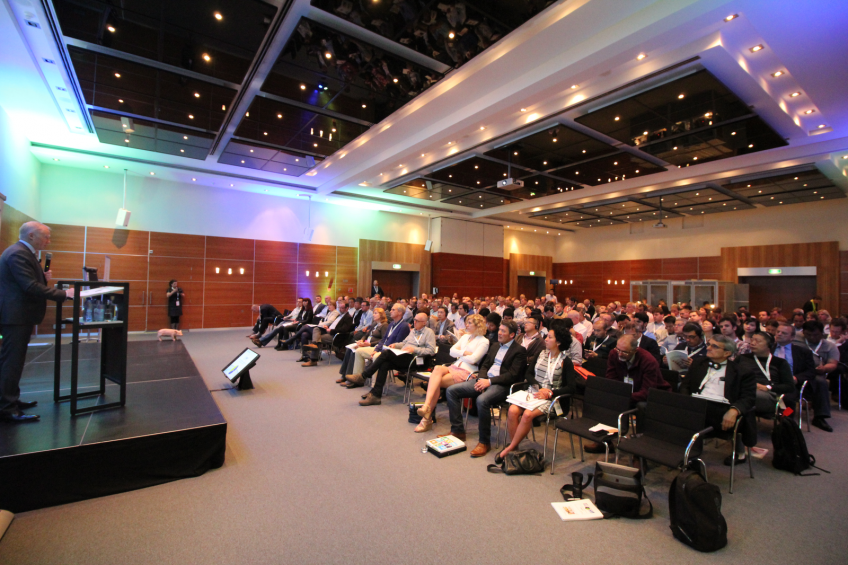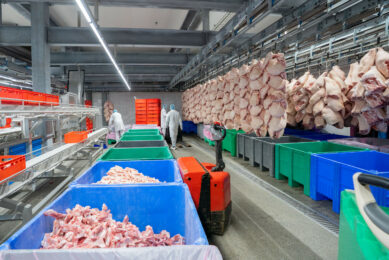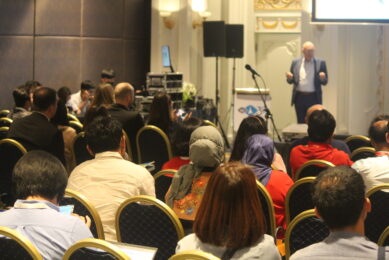Trouw Nutrition kicks-off pig LifeStart concept

Trouw Nutrition, part of Nutreco, has kicked off its LifeStart concept for pigs with a two-day event held 12 and 13 May 2015, in Eindhoven, the Netherlands. The event attracted approximately 200 delegates from 27 countries worldwide, among which strong delegations from both China and Latin America.
As Nutreco CEO Knut Nesse pointed out, key to the LifeStart concept is to make the pig industry aware that whatever happens in the earliest days and weeks of a pig, has a very strong influence on the animals’ performance during the rest of their lives. Providing the right health, management and nutrition in the first six weeks of a pig’s life will help achieve pigs their potential – something that is important in the bigger picture of producing more meat in a sustainable way.
Strong influences
The symposium kicked off with laying a strong scientific basis for the concept of LifeStart. The first to speak was Prof Dr Martin Kaske from the Department for Food Animals at the Vetsuisse Faculty in Zurich, Switzerland.
His presentation summed up a range of different studies all pointing into the same direction: whatever is happening to an organism in its early stages of life – or even in the prenatal phase – has a strong influence on the rest of its life. Just one example was the long-term effects of the so-called ‘hunger winter’ of 1945 in the Netherlands. In later life, people who were born just after that winter had an increased risk of e.g. coronary heart disease or a reduced glucose tolerance.
Kaske said metabolism of mammals can be programmed and defined it as follows: “Early adaptations to a short nutritional perinatal stimulus permanently change the physiology and metabolism of the organism and continue to be expressed even in the absence of the stimulus that initiated them.”
Similarly, an organism’s immune system and brain development can also be programmed.
Zooming in on pigs
Prof Dr John Pluske, Murdoch University, Australia then dived into this topic from a pig-specific angle. He touched on many moments in a piglet’s life that make a crucial difference for their development. For instance, their birth weight, the development of the foetus, the moment they first drink colostrum, etc.
He said, “Exposure (environment, substrates, antibiotics) imprinting in early life has a significant impact on microbiota composition of the adult gut, digestive physiology and immune function. Developmental insults (e.g. poor or inadequate pre- or post-natal nutrition) can have long-term consequences on health of the offspring.”
So, he concluded, “Growth and development of the gut (prenatal, post-natal, after weaning) are integral to whole-of-life industry measures.”
Veterinary view
Manon Houben, of PorQ veterinary advice, gave a veterinary dimension to the LifeStart idea by emphasising the importance of involving a veterinarian in the planning of a farm’s day-to-day practices. She said, involving a vet as the ‘health case manager of the herd’ helps to achieve a holistic approach and to ensure the best life start for piglets.
She pointed to e.g. giving jute bags to sows prior to farrowing, which helps them to do some nest building, which in turn eases the farrowing process; when and how to help sows with farrowing; when and how to do cross-fostering and how to be more aware of hypergalactia or mammary gland problems.
Practical view
Last speaker of the first day was by Thierry Janssens, a breeder and producer from Belgium, having 600 sows and finishing pigs in three locations. He presented some noticeable improvement when he started working according to the LifeStart philosophy as from last year, most notably the daily growth (up to 380 g between three and ten weeks of age), the days to slaughter (from 190 down to 173) and the average daily gain in finishing (25-115 kg), which went up from 750 g to 850 g. He also spoke of more homogeneity at slaughter.
On the second day of the LifeStart symposium, speakers from Trouw Nutrition addressed the audience, including Dr Ruben Decaluwé, Dr Sandra Paredes and Dr Neil Ferguson. In addition, Dr Astrid de Greeff (Central Veterinary Institute, Wageningen University, the Netherlands) spoke of early life interventions in the piglet programme.











